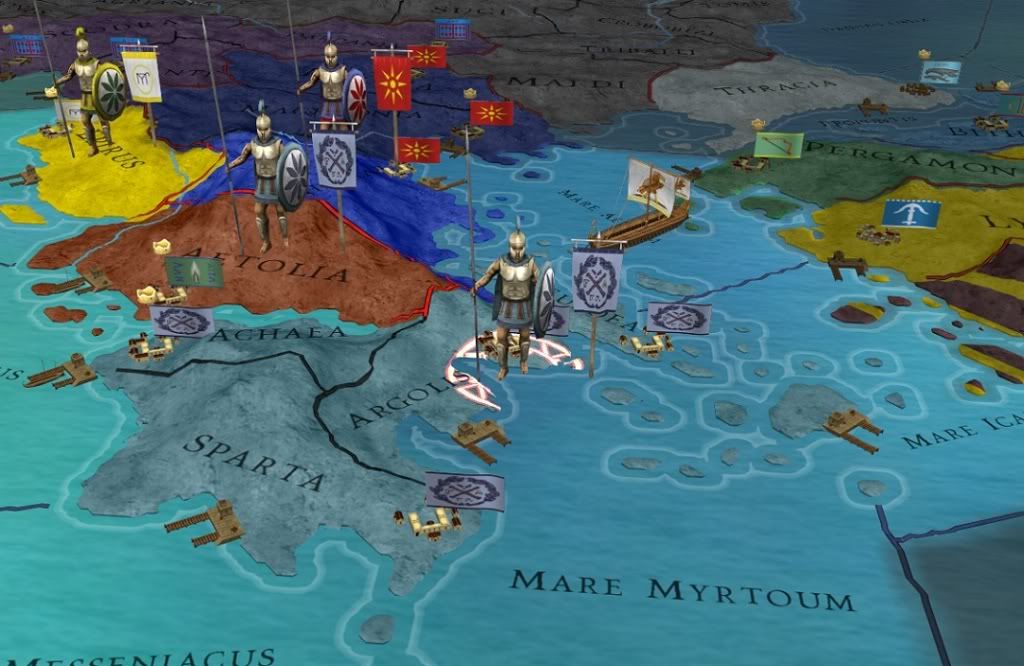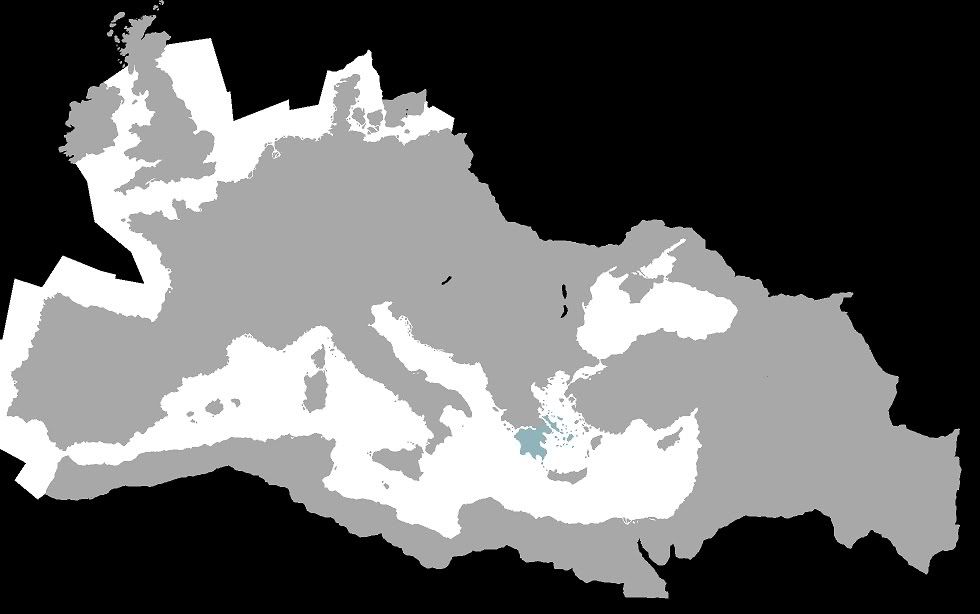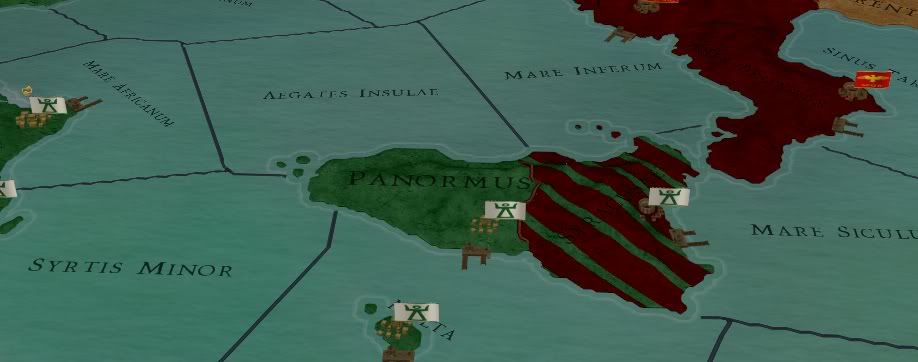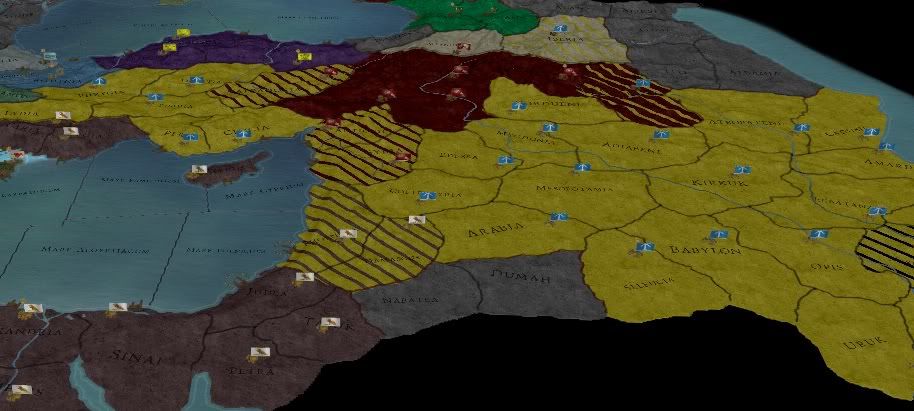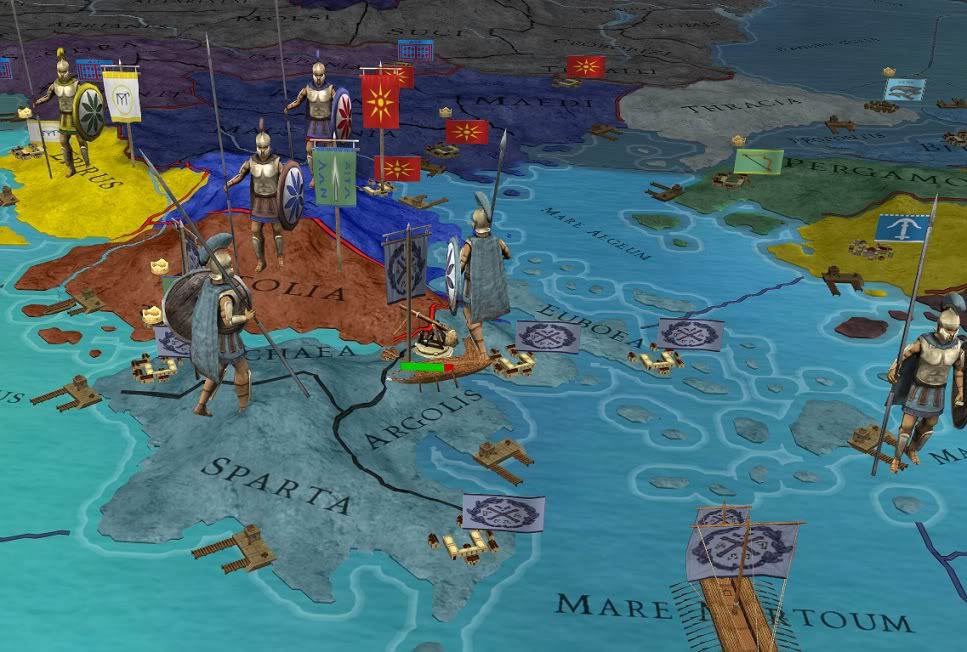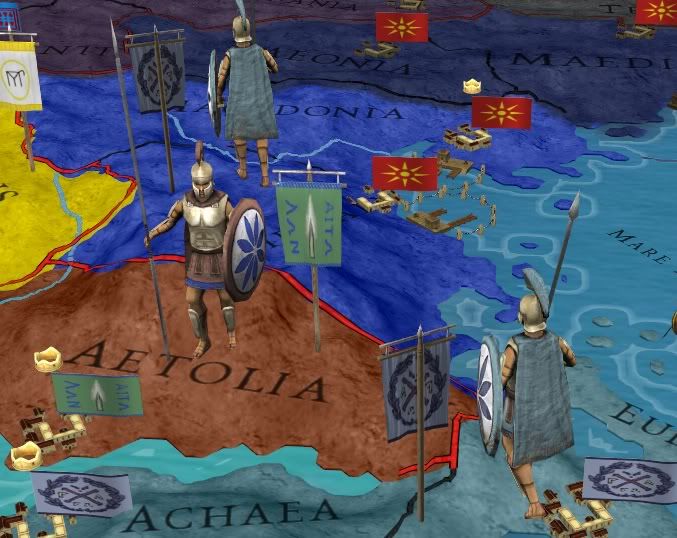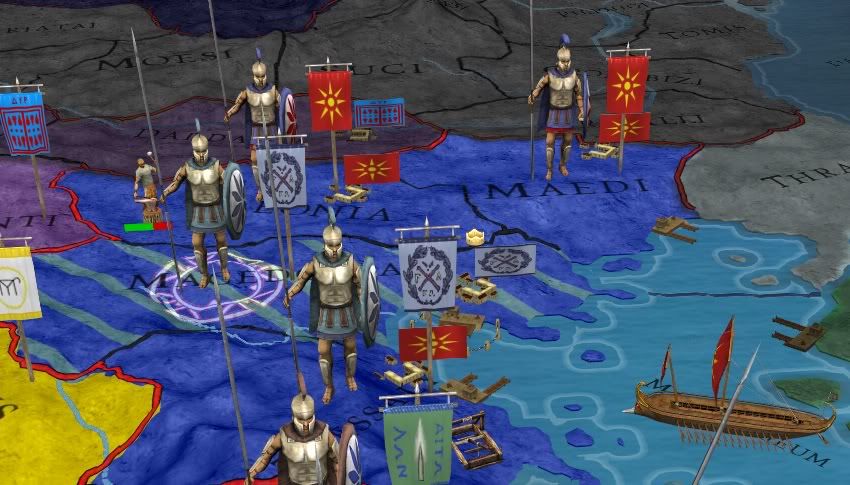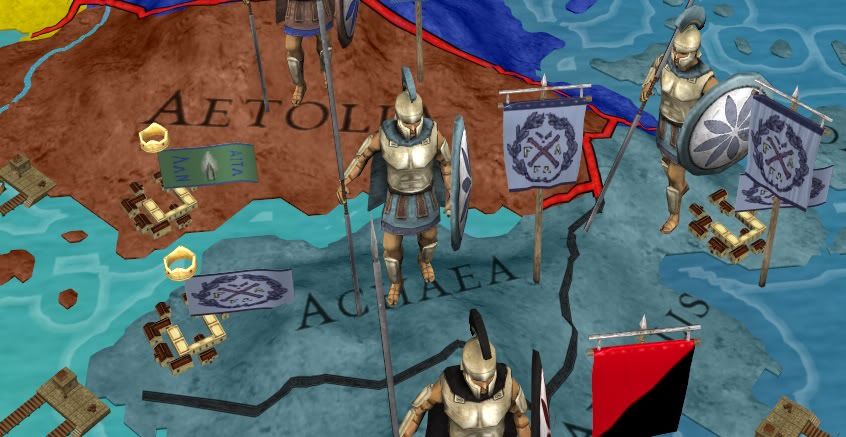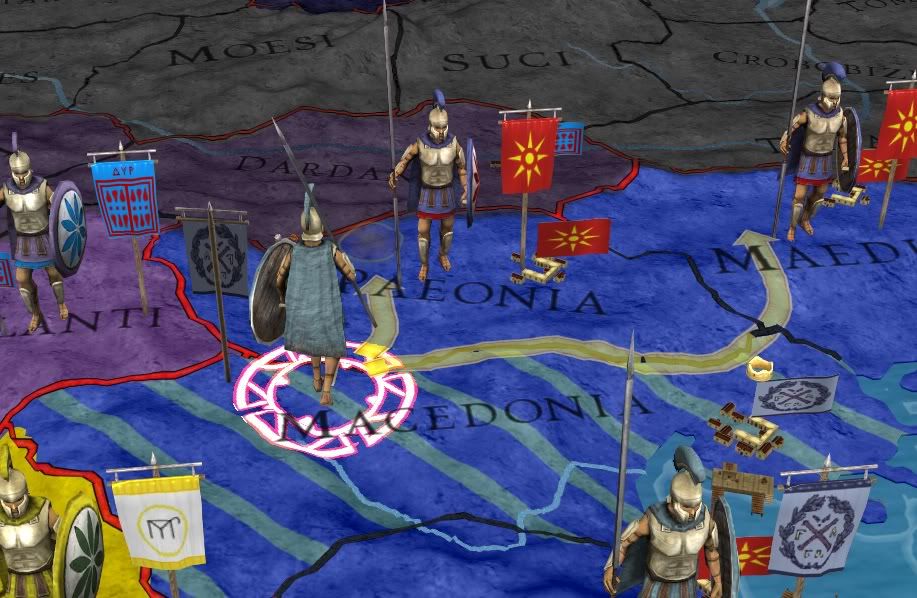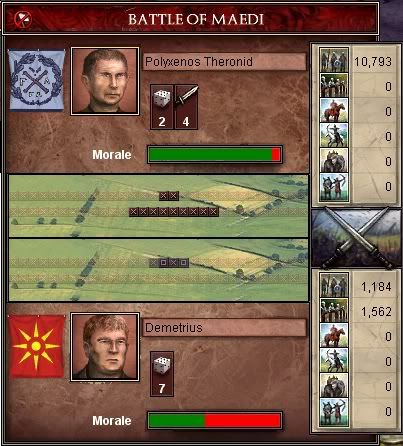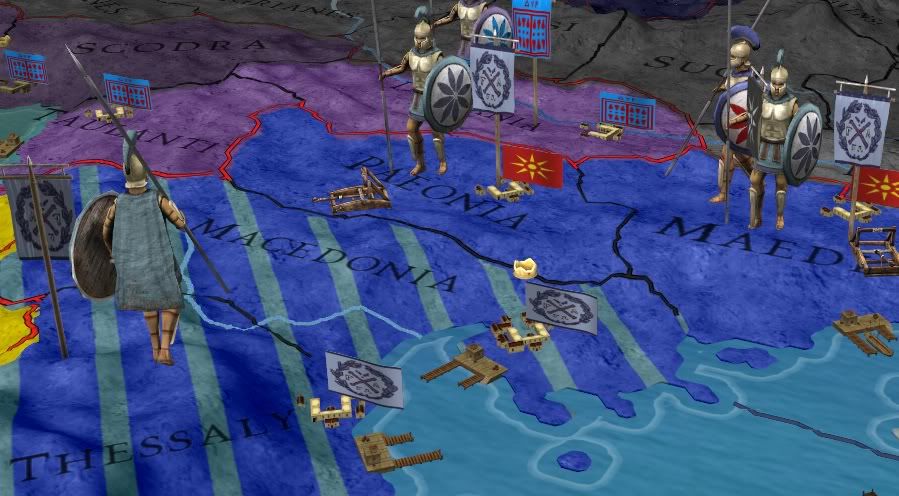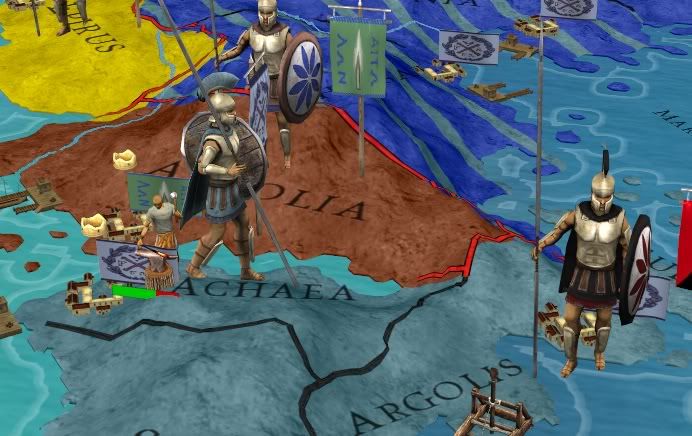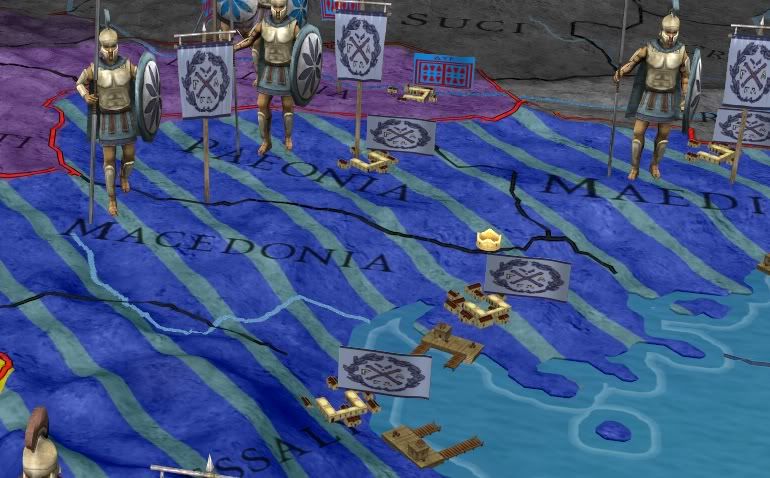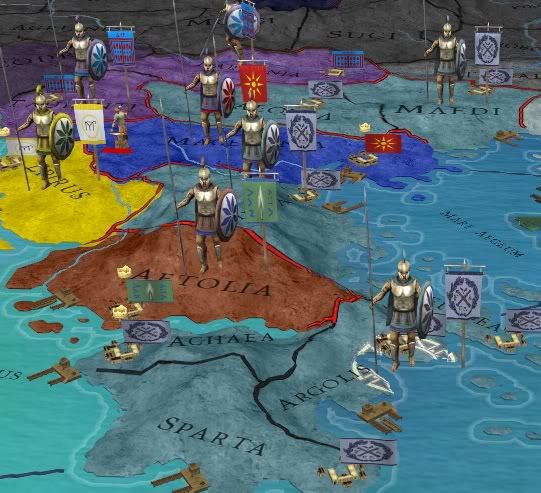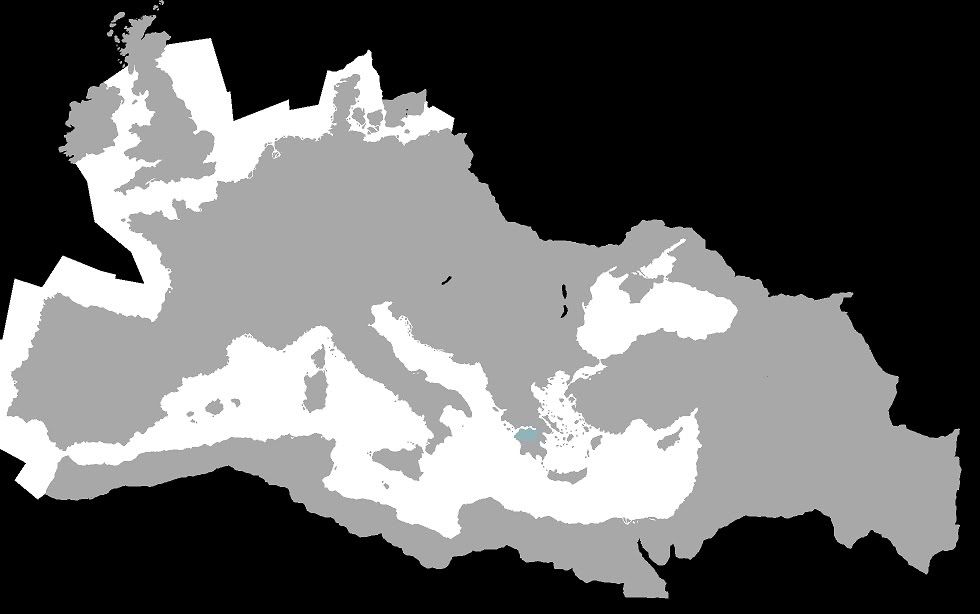
Deep in the ancient heartland of the Greeks lied a tiny republic known as the Achaean League. These people watched the might and will of Athenian democracy push back the old Persian armies time after time, only to see it's glory extinguished by the greatest Greek ruler that ever lived. As the diadochi tore apart Alexander's holdings, a truth had been rediscovered amongst the Achaean people that had long been lost: an empire lasts as long as the man; a republic lasts as long as the nation. The leaders of the Achaean League understood that Greece could never again assemble an army that would conquer it's way to Babylon and the Indus River in ten years. But what they had was something far more valuable, a fanatical belief in the power of the republic and democracy to propel the Greek people to a true lasting, undivided, and untouchable power.
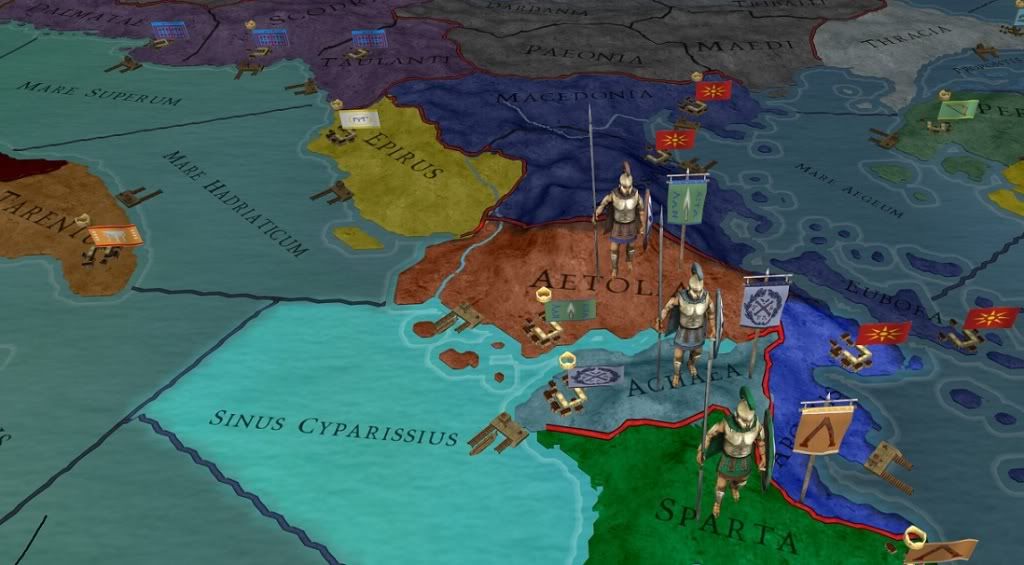
This philosophy had brought new life and strength to the tiny Achaean League. Across the channel was another prominent Greek republic known as the Aetolian League, whom the Achaeans befriended rather naturally as an ally, knowing their ambitious plans for the future would require their strength and faithfulness. The Achaean League watched with curiosity and silent dread as Tarentum was assaulted by the barbaric Roman peoples to which King Pyrrhus of Epirus was responding by assembling a massive host. This was more than an ordinary war. The Romans had been on the rise for centuries. This was a test that would reveal through blood and iron whether the Greek world was still supreme.
The Achaean League was fast approaching the crossroads of history, and it would respond as many before it had: militarily. The Achaean League undertook a massive new recruitment program and developed new recruiting methods and it paid off. By the spring of 475AVC they had established two armies of 11,000 men each, both of which were led by the most talented generals the republic had ever birthed: Polyxenos Theronid and Polyphron Helladid.
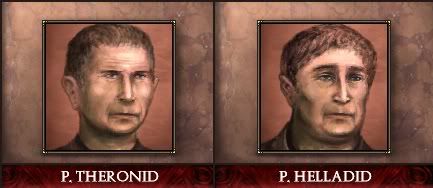
This was not an army that had been built for parades and flair. War had been declared on Sparta, and in turn her overlord Macedonia, one of the heirs to Alexander's empire. The armies marched upon Sparta and Argolis. The time of war was no random decision, the Macedonians had been bogged down in sieges against the Illyrian barbarians to the north and had left Achaean's borders severely undermanned. This war was a gamble, and everyone in the Achaean League knew it.
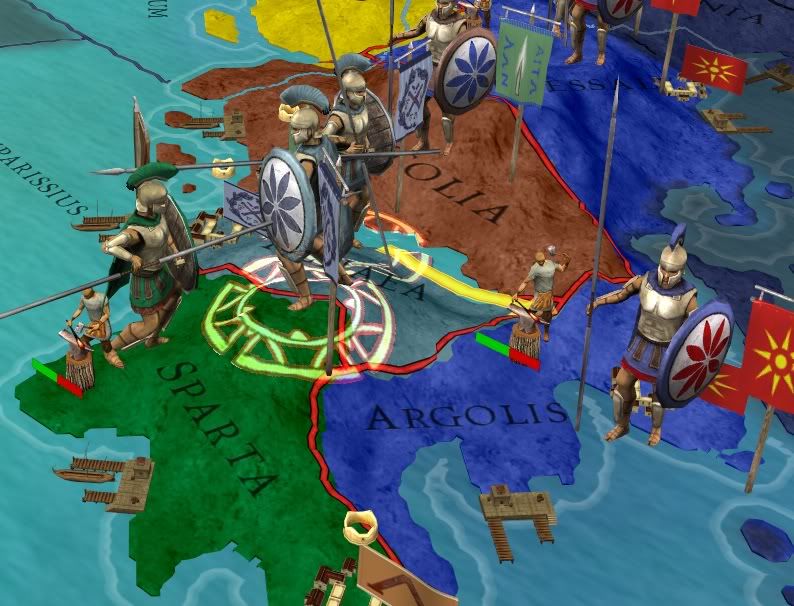
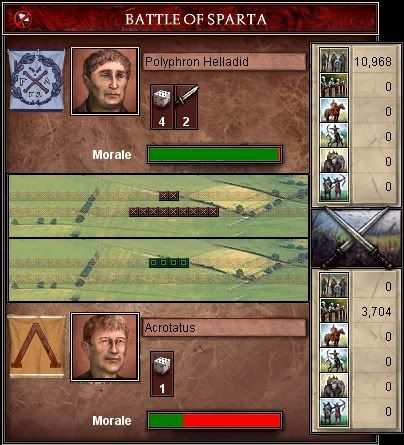
General Helladid's army met it's target first, in Sparta, and the victory was total. The Spartan army was annihilated and it's city under heavy siege. The battle was a celebrated one, but the attention of the Achaean League quickly turned to General Theronid's army's imminent assault on the Macedonians in Argolis. This new war was nevertheless already bringing some in the republic's leadership to a breaking point as stress and fear flew like disease through the air; but then some unexpected news arrived. An envoy had arrived and said that the Aetolian League had entered the war and was preparing to march an army of 19,000 men on Thessaly! A thunderous roar of celebration had erupted in the senate so loudly that it was heard outside and begun to spread like a wildfire.
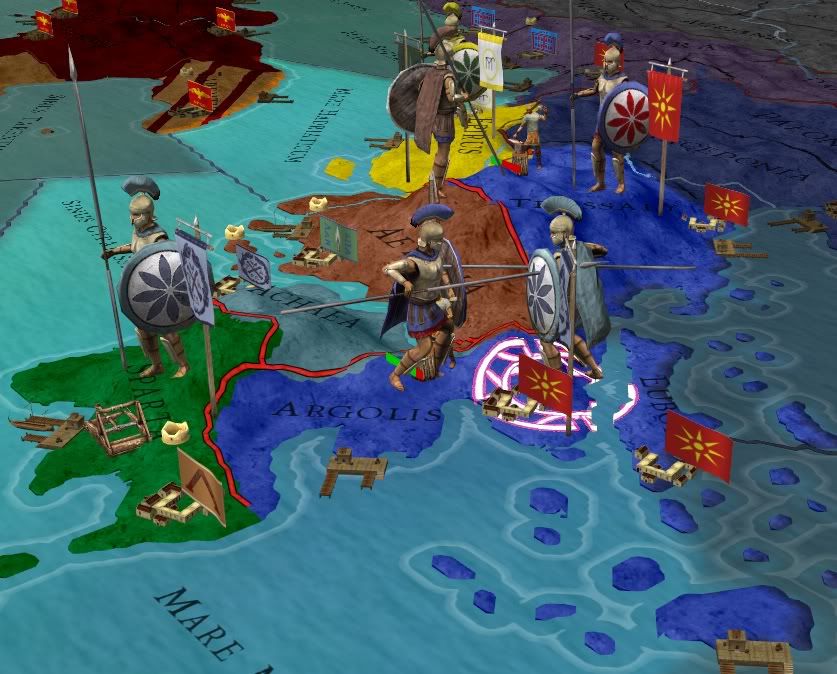
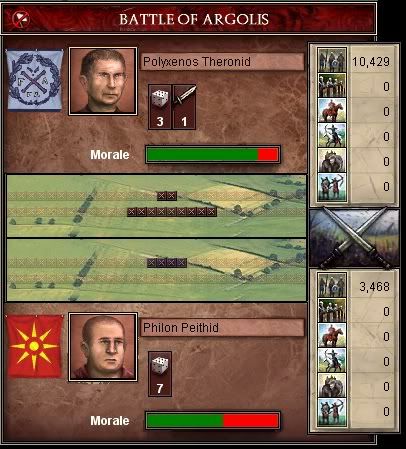
Not more than a few days later General Theronid reached Argolis and soundly defeated the Macedonians. However, Theronid had no time to celebrate nor was he the type of man to do so. He intended to pursue the army before it could regroup with a larger Macedonian force that must have been surely abandoning it's Illyrian ambitions in the north. Perhaps the Achaean League's luck was going to run out, he thought.
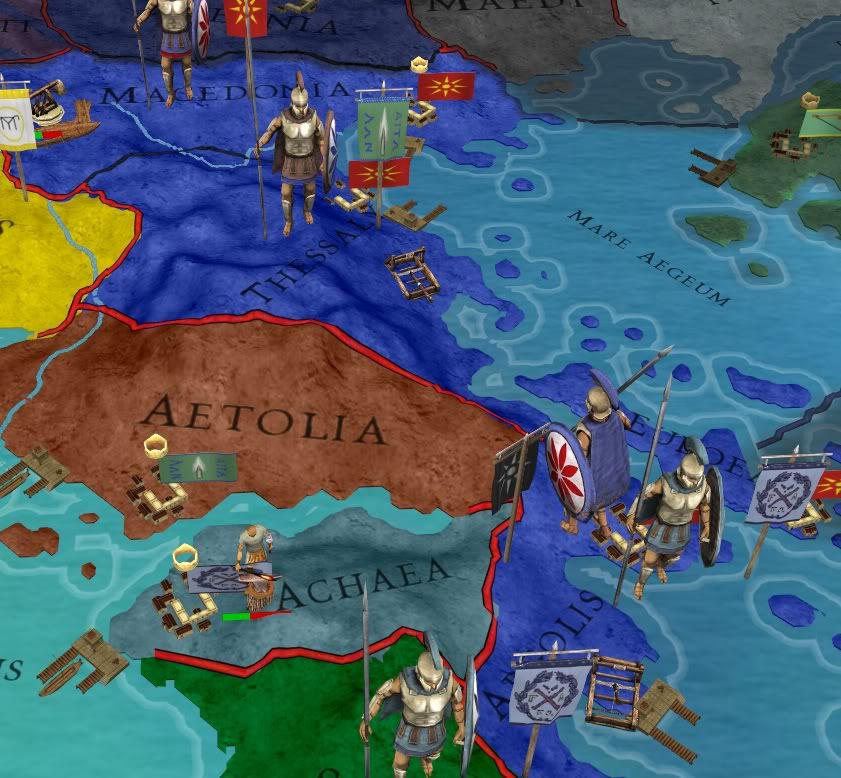
The timely arrival of the messenger delivering news of the Aetolian League's entry brought a rarely seen warm smile on the stern general's face. The fleeing Macedonians were going to be trapped between 30,000 men. Was it really possible that the war could end with Macedonia destroyed? His smile quickly faded as he was already starting to make calculations for the next phase of the war, but for now they had earned a brief moment of rest.
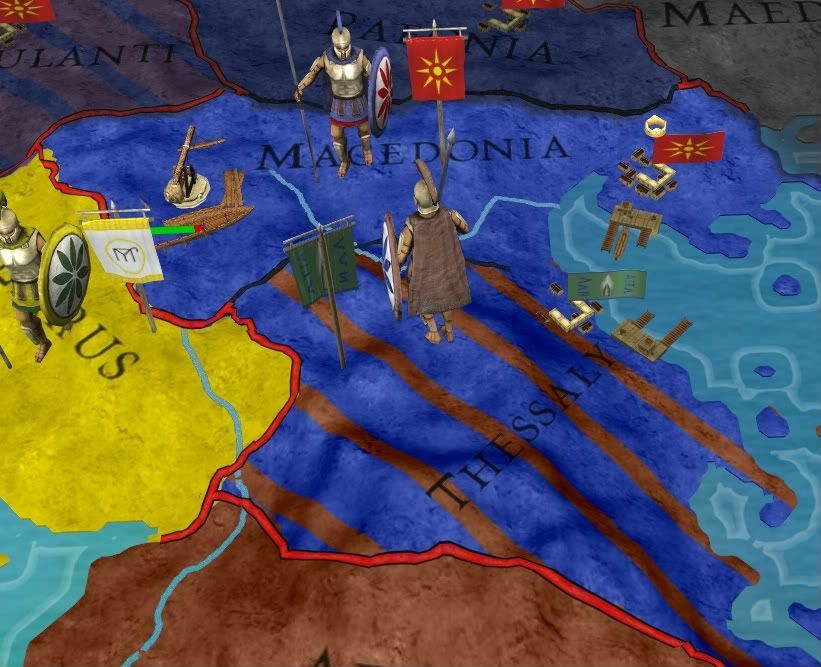
As the summer sieges continued and fall approached, the Aetolian League's army captured Thessaly and began a march on the capital of Macedonia. General Theronid was confident with the security of his flanks and had created a new small army out of his siege forces, with the goal of seizing the many Macedonian islands lying between Greece and Asia Minor. This effort was however continuously repulsed by the vigorous Macedonian fleet. In this period of time a new army had begun forming in Achaea. The Achaean League's devout belief in the gods went further yet with the emergence of yet another great general for this army by the name of Leonidas Omirid.
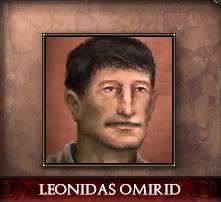
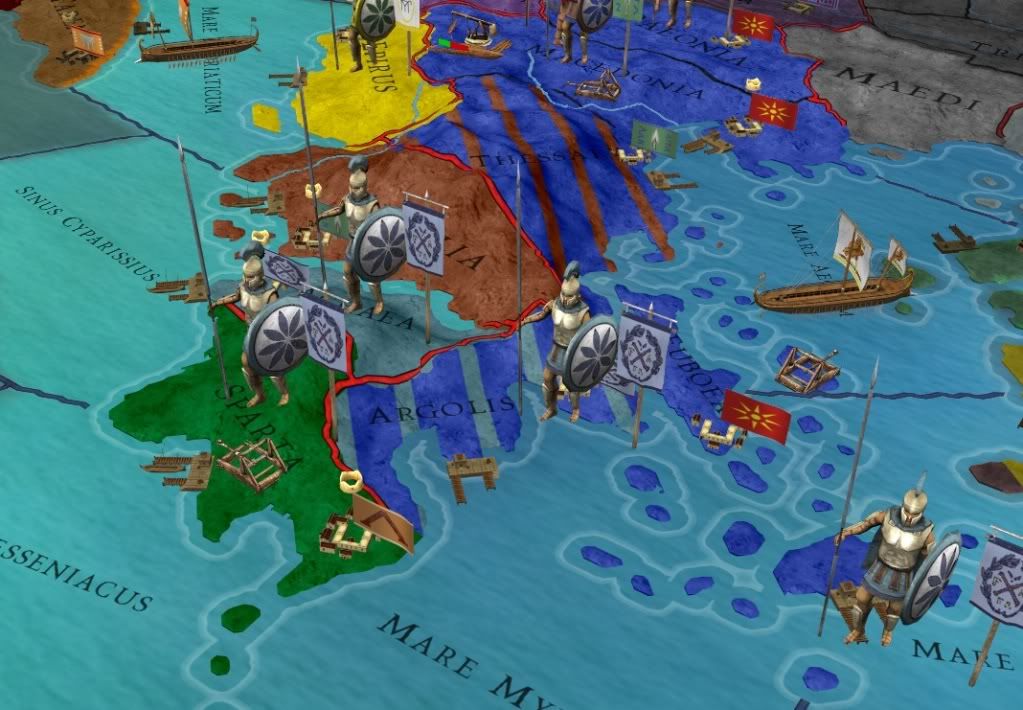
As winter arrived, the sieges continued, and the armies grew. Argolis was captured, and General Omirid's new army managed to breakthrough to the islands. It appeared Macedonia, with the army at it's capital defeated and the city under siege, had been erased from history. The siege of Macedonia lasted into 476AVC until it was finally captured in March.
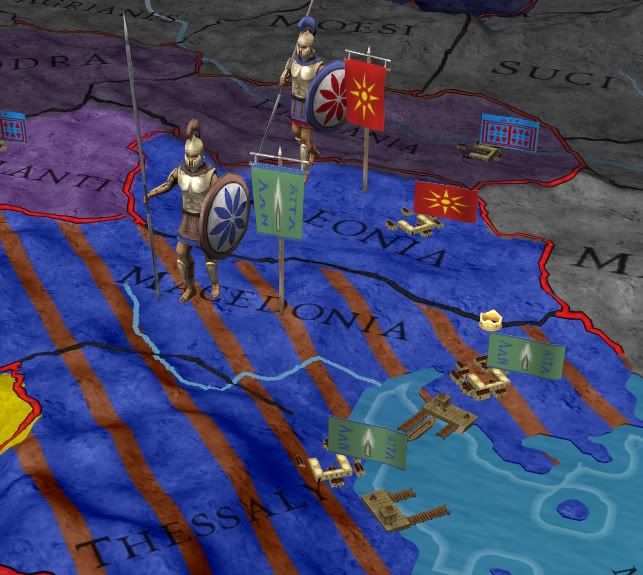
But an heir of Alexander's empire is never to be underestimated. Almost immediately a Macedonian army was spotted approaching from the north to retake their capital. The long-feared Macedonian army had arrived. They sent the powerful Aetolian League army retreating into Thessaly and quickly recaptured their capital.
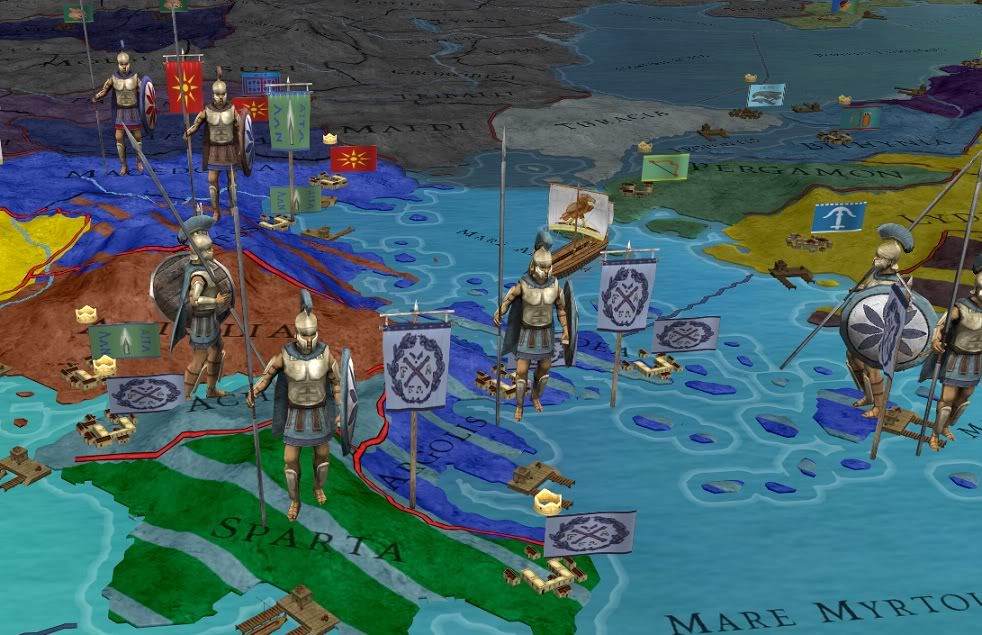
The tides were turning against the republics but the clear-headed generals of the Achaean League were calm in knowing that wars are not simply one army fighting another. The summer had seen the Aetolians reinforced in Thessaly while Sparta's long siege was finally brought to an end by General Helladid along with the prominent island of Euboea being under the complete control of General Omirid's army. The reinvigorated and highly-experienced Macedonian army calculated on defeating the Aetolian army in Thessaly in one grand battle, and probably rightly so. But the generals knew it: this war was something different. It was the dawn of a new era. This was the arrival at the crossroads of history. The 30,000 men of the Achaean League's army, led by 3 of the greatest generals in the Greek world, were now freed and ready to march north. If the Macedonian army could defeat both armies, what would the cost be? Macedonia would have nothing left with which to defend their victory. They had won. The mighty Macedonians had been brought to the bargaining table.
